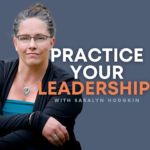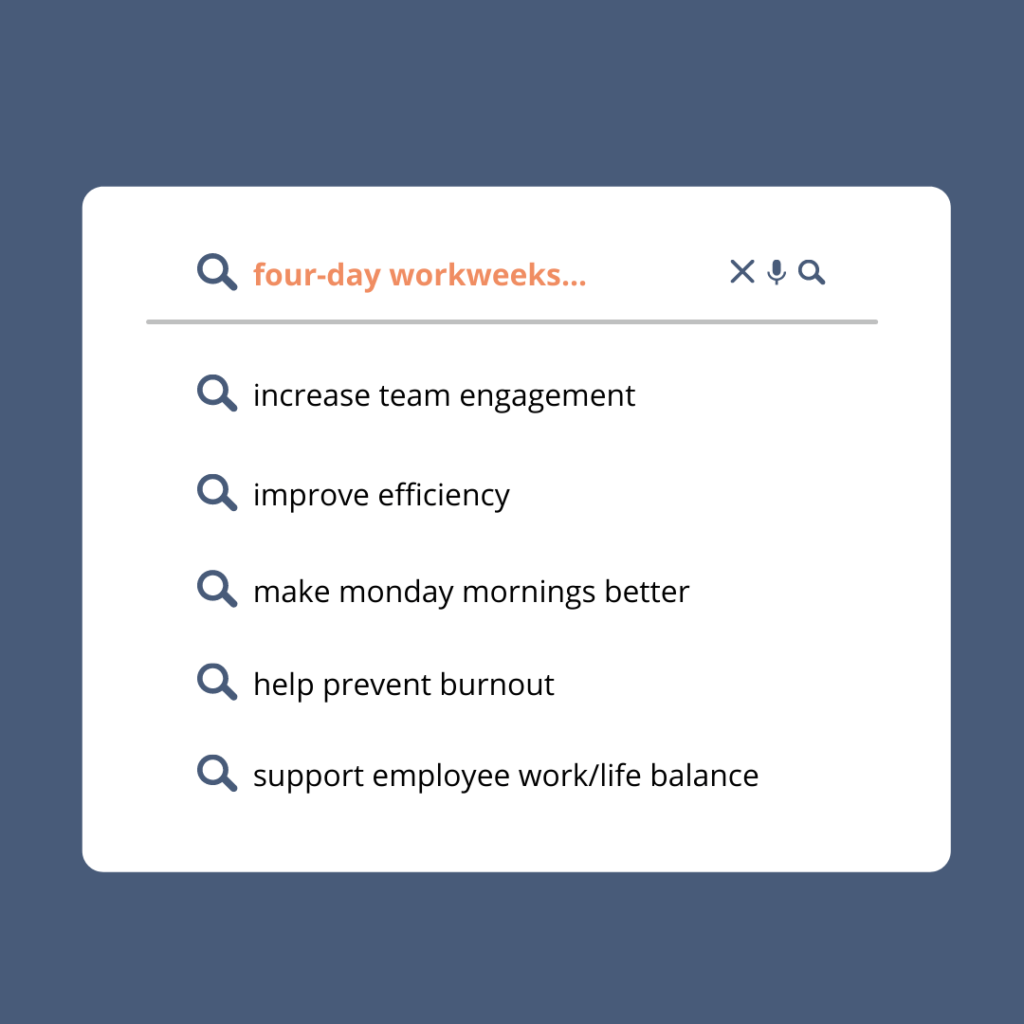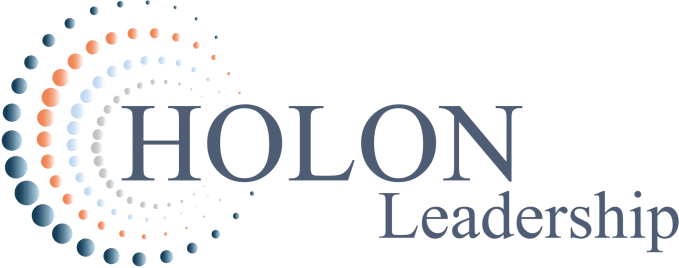Saralyn: On our last episode, we had our first part of a two part series with Jason from O Strategies. We were fortunate to have him come on the podcast and talk about hosting better meetings, making meetings meaningful.
And what we’d like to do for this part is continue our rich conversation and explore a venture the company has taken around four day workweeks. Enjoy. Talk me through the four day workweek and like why y’all decided that and how that holds this place of an intentional, shared, accountable, engaged culture.
Jason: The four-day work week is for us an experiment that we’re practicing. Again, it’s not a permanent shift, although I can’t see ourselves go back to a five day workweek. It’s kind of, once you go four day workweek, you don’t go back. I don’t think, like, I don’t think it’s feasible for us to go back to the five day work week and I’ll tell you why.
Most of us structure our workweek because society structures the workweek for us, you know, we’ve been doing this five day workweek for the past century I mean for many reasons, but mostly because, workers, a century ago wanted better working conditions.
And then technology came, uh, slack, zoom, email, uh, we don’t use faxes. Well, some people use faxes, but I don’t. Um, but we have so much technology to help us be more productive and efficient especially in the type of work that we do at O strategies, which is considerably complex, you know, we’re in the social innovation, capacity building, organizational design space.
We did see throughout the pandemic, people not burning out, but getting pretty close and not on my watch will that happen. At least I will try to mitigate it as much as possible. And the research around the four day work week is starting to become quite conclusive in that people are coming in, for us anyways, anecdotally, Monday mornings are much more engaging. People are more present. People are ready to get going on Monday morning, who knew, right? Who knew you come into work Monday morning after like maybe a quick, you know, a quick shot of espresso and a shower and you’re ready to go.
Saralyn: Makes me think of Garfield like Garfield and Monday mornings, right? No way.
Jason: Most of us are like that. Like Monday mornings and Friday afternoons are kind of the low-energy moments of our week. So there are some efficiencies in there, but also we’re much more than, facilitators and designers and researchers and consultants. We’re human beings with families and, interests and pastimes and passions that are, external to our work.
You know, I have a partner, I want to spend more time with him. I want to get some errands done and not have to rush through the weekend. So, I mean, there are so many like operational and technical reasons why the four day work week works for us. But especially the part that gets me excited is that we’re doing something different and we’re doing something kind of on the leading edge of work or the future of work. For me, that excites me a lot because I think as a team, the status quo just doesn’t work.
And, uh, we were ready. I think we had the internal organizational culture to be ready to try this. Which is like, the four day work week isn’t easy, bottom line. Like to get into this and to shift your work week, to condense your work, you know, some companies say, well, work four day hours in four days, we diminished the number of days and the number of hours.
Jason: So you’re not working nine to nine from Monday to Thursday, you’re working from nine to five still.
Saralyn: Yeah.
So we have this, trust and that’s been built throughout the last two and a half years because O Strategies was born or was created right before the pandemic in January of 2020.
Jason: Uh, so kind of a pandemic baby. And so, yeah, so we have this like culture of trying new things, in the hopes that we learn things, we reap the benefits of this shift in how we see the workweek, how we see this practicing of balance between my personal life and my work life. And then working out loud, which means sharing our story, sharing our hits and misses.
So a lot of media in New Brunswick have picked up the story actually of our four-day workweek. A lot of municipalities are thinking about transitioning to the four day work week. It’s kind of getting some momentum, but beyond that, we’re doing it for the learning experience, for the mental health benefits, for the efficiency benefits, because it’s not just about productivity, it’s about efficiency as well.
So yeah, so it fits into all of that into the organizational culture that we’ve built through these connections, bringing in the right people, the people that are willing to try these things, it necessitates people who are willing to kind of be on the learning edge. And where it’s like,just a little bit, a foot out of the comfort zone to be learning consistently.
Saralyn: Which is not for everybody
Jason: No, absolutely
Saralyn: not.
And it doesn’t need to be, but here’s what I’m hearing is that O Strategies in experimenting its way towards growth from a formula of human connection and capacity. One of your experiments is the four day workweek, which is not easy to do when you hold true to what it actually means.
Not 50 hours in three days or whatever it is. Right. But to be able to create the effects of three things, the mental health benefits, the efficiency benefits and the engagement, which equals productivity, right? Let’s redefine productivity through engagement in this case. And what it requires is this organizational context, and it requires the right people.
I’m using air quotes, who are emotionally intelligent, can play in experimentation, prototyping, ideation, that whole innovation schpiel, can co-design and who can play at the learning edge, right? De-center their own ego. Center in the system, the team, the organization, the culture, the impact. So I, again, what you’re suggesting isn’t for everybody, but of course not.
And there is a place here to say when you find the right people and you connect them in an intentional manner and what your organizational entity stands for is impact. Then you’ve got something good going on, but there’s a responsibility to stand up and say, okay, what are we going to experiment with now?
What is, uh, so conventional, but it’s actually not serving us like, oh, burnout, how are we going to tackle that? What does that mean? What are the new narratives we need to have? What’s the new paradigm we need to have? What are we norming internally? How do we share that out loud? So that not just because that’s fun, but because we start to create the fertile ground outside of us to say, oh, four day workweek, maybe there is something to that, right?
Like that outside of your own experimentation lab in this case called O Strategies, that there’s different conversation. Fabulous.
Jason: And actually, now that I, now that we’re having this conversation, I see something even more important than the actual result, which is the transition to the four day workweek is the decision process we went through to get there.
Yeah. Because I want to talk about that. So, because it’s so important, right? It’s, it’s, it’s, it’s so important.
It’s like, whether it’s a good thing or not, uh, we know that in hierarchical organizations, decisions are made mostly middle management, high-level executive management. For us, the conversation took a long time before we got to the, alright, let’s try it out. It wasn’t like a, yep. We’re good.
Permanent change. Transition to four day work week forever. We were like, what are the boundaries? What are the givens that we’re putting on paper or on mural in this case. So on a, on a virtual whiteboard, what are our givens? What are our assumptions and boundaries about this experimentation?
Saralyn: Yes. Yes.
Jason: That was probably the most important conversation. And the one as equal important was what are our hopes and fears about this decision?
Saralyn: Yes. Thank you for that.
Jason: What are our hopes and fears? We do the hopes and fears, quote, unquote hopes and fears, exercise anytime that we get into a new project, we do it with clients. What are your hopes and fears about this Strat plan? What are your hopes and fears about this conference?
What are your hopes and fears about the four day workweek? I can say a few of my hopes and fears. My hope was that I can spend more time resting because as an entrepreneur, I feel like every weekend I get to work on Monday morning and I am not rested. My fear was I won’t get everything done. And I could show you a long list of hopes and fears.
It’s it is overwhelming to see how many hopes and how many fears we had about this decision, but so important. And we did this right from the get-go. This is the idea, what are your hopes and fears about that? And then these hopes and fears, craft the boundaries, the givens and the assumptions and the, nuances, the texture of of this decision.
So that we go into it, knowing exactly what our expectations are. And we’re also ready to backtrack and pivot. And say this might not work. Because even though, you know, a few people brought up the conversation or brought up the idea of this four day work week, they don’t want to be labeled as the defenders of the four day work week.
They want to initiate a conversation and then let that go. Again the ego just, you know, for me, the four-day work week was a positive thing. I am all for it. I’m still all for it, but what if my colleagues aren’t all for it? I need to bring that into perspective into any decision-making. And then finally, after all, I mean, we had hours of conversation.
Did that cost the company in dollars? Yeah, of course. Was it important conversation and was it worth the time? Absolutely. The decision at the end was a co-creative decision-making process where we’re like, people were either, I’m all in, I want to be part of this transition. I want to get my hands dirty into making this work.
Or I’m into it I’m all for it. But you folks, you build the process and you guide us through the transition or I’m okay with it. I can live with this with the decision and I will live with the consequences of what we’ve agreed on.
I have serious reservations, so that’s like the fourth level. I have serious reservations that we need to talk about. And then the last option is like, I’m vetoing this decision and anyone on the team can veto with this decision and saying, I think this will have negative consequences on the collective or on a human being. So that’s like,level five where like, all right, I’ll stop.
We’re not going ahead with this until we figure things out.
Saralyn: Yeah.
Jason: So that process was so important. It’s not just a question of imposing or even democratic voting it’s to evaluate what’s the level of engagement and acceptance of this decision and being perfectly ready to like backtrack and say, all right, we’re not ready.
Saralyn: And that’s it, right. It’s being able to, it’s not about being an asshole. It’s about saying, okay, this is where I stand. And this is what I see. And everything that you’ve talked about here, Jason, again, I’m inferring this, so tell me if I’m wrong. But the behind foundation behind it is the, not just the idea, but the knowing that in this group, in this system, what you call team, that we know the answer within us.
We don’t need to go hire this person out there. The answer is not in that book over there, that when we come together, the intelligence, the resourcefulness, the sight lines are right here. And it’s through the human connection where we host each other in these meaningful conversations that we’re able to then surface it and bring it out, right.
And hold each other accountable and engaged into that and all be able to honor the different perspectives of the same note, not to solve yours or buy in that or whatever, but to say, okay, so now what does this tell us? And so now how do we move forward? Right. Very deep democracy, like very much from a place of connection and belonging, right.
These types of words that are thrown around, but this is what it looks like in practice. That’s what I’m hearing.
Jason: Yeah. Spot on. Yeah.
Saralyn: And I will say for me personally, helpful or not, when I was a working mom with really young kids, I tried to do a three-day work week myself. And then I tried to do a four day work week because that was impossible.
And the cultural context wasn’t there and what it did is it just put all of this further weight on me when really what I needed is I needed to find some more time because I had more to hold, right? Not only my identity and growth, not only raising this kid, but also holding this team, doing this work, like they’re much less daycare drop-offs anyways, that’s a whole nother matter, but it’s like, okay.
Some of us try, we try to figure out, well, I really want a four day work week. I’m willing to take the pay cut. I’m willing to take whatever. But if the, the cultural context isn’t there within the team, the organization to ask for it first off or actually live within it. Oh, well, I’ll just do that. Um, which is, I’ll just do it tomorrow night.
Just don’t say right? Like, it’s that kind of stuff. Or to say, god, I’m just not good enough on this team. Or even further for the team to say, wow, she really isn’t producing. Right. Like, there’s just so again, to acknowledge and honour that there are many people who are trying to just do this solo and what’s happening at O Strategies here is a whole cultural context within the organization and the organizational design to hold it. You parents out there who are trying to do your three-day, four-day workweek and manage your kids. I feel you, right, right. Or you’re trying to manage your parent or you’re trying to whatever, do your, whatever. It’s hard. It’s hard. Thank you, Jason. For this conversation. Holy cannoli. Thank you for sharing your story and the team’s story. I know that you know that the other people in the room are your whole team with you, right. Uh, in, in sharing this journey. So I appreciate that. Thanks for showing up and spending the time just sharing your heart. I appreciate it.
Jason: It’s a pleasure. I appreciate you as well. It’s always good to be in conversation with you. It’s always meaningful and deep and would love to share it even more. You know, we, we need to be learning out loud, working out loud more and more, and I’m glad to have had this opportunity to, uh, share what we’ve learned.
Saralyn: Thank you.



 Apple Podcasts
Apple Podcasts Spotify
Spotify Google Podcasts
Google Podcasts